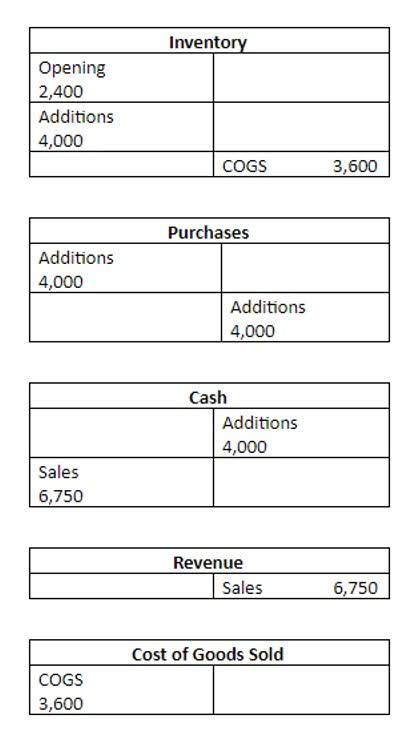
By implementing the right record keeping systems, organizing and maintaining records accurately, and leveraging professional help when needed, you can maximize the benefits of record keeping. In summary, it is evident that record-keeping is essential to small enterprises’ success in the fiercely competitive marketplace. However, using accounting software for bookkeeping services like Inkle Books can significantly reduce stress and yield several advantages. Ensure all documents have served their intended purpose before discarding them, not just with the IRS but also with other parties such as creditors, attorneys, insurance providers, etc. Here are five steps to simplify the process of keeping records for any new small business owner. Thirdly, finalize the record by inputting data into accounting software or sharing it with a bookkeeper.
- Most accounting software will automatically import your bank data so you don’t have to manually enter and organize each transaction.
- Not only does efficient record-keeping simplify tax filing, but it also aids in monitoring your spending and, should it be necessary, providing documentation for audits or legal proceedings.
- From payroll taxes to managing invoices, efficient bookkeeping smooths out the process of all your business’s financial tasks and keeps you from wasting time tracking down every dollar.
- When it comes to budgeting for bookkeeping, the difference hinges on whether you hire or manage using software tools.
- However, general ledgers can get complicated if you’re trying to juggle multiple accounts.
- Always keep your business records backed up in at least one cloud-based storage.
Best practices for record keeping

The more copies you have, the less chance there is of you losing the documents. You are now leaving the SoFi website and entering a record keeping for small business third-party website. SoFi has no control over the content, products or services offered nor the security or privacy of information transmitted to others via their website. We recommend that you review the privacy policy of the site you are entering. SoFi does not guarantee or endorse the products, information or recommendations provided in any third party website. Expand your bookkeeping knowledge by brushing up on the most common bookkeeping errors (and how to avoid them).
Recordkeeping Best Practices for Small Businesses
Moreover, a robust recordkeeping system streamlines the auditing process and minimizes the possibility of fines resulting from oversights. It also aids in effectively managing accounts receivable and payable. Additionally, well-maintained records play a pivotal role in swiftly resolving disputes with customers or vendors, serving as evidence of transactions. Accurate records allow us to create financial statements that reflect our business’s health.

g. Mileage tracker for logging business miles
Additionally, it’s important to recognize that the term “accounts” in bookkeeping refers to certain groups of transactions, rather than to actual business bank accounts. The business Chart of Accounts includes assets, liabilities, revenues (income), expenses, and equity. Maintaining bookkeeping tasks is essential for the stability and success of small businesses. With so many moving pieces (including assets and liabilities, and income and expenses), Partnership Accounting small business owners must stay on top of it all.
What are some accounting best practices for small businesses?
The best combine OCR and AI tools to make your data entry easier and less prone to mistakes. When records are lost or stolen, your first reaction should be to inform anyone whose sensitive information may be at risk. For example, if payroll records have gone missing, inform your employees that their SSN might have been exposed.
- If the cost starts to approach the actual cost of outsourced bookkeeping, it’s time to consider taking the load off your back.
- The DOL requires that you keep any documents that help you do payroll.
- You should also keep records of any business transactions that support your income statement and the information on your taxes for up to seven years.
- In summary, it is evident that record-keeping is essential to small enterprises’ success in the fiercely competitive marketplace.
- If you’ve accurately kept track of and reported your employees’ salaries and wages, you can claim them with the Employee Retention Credit.
Set Up Payroll

When you implement a proper bookkeeping system, you can get up-to-date, accurate records, avoid missing transactions, and have better control over your business savings account. Bank reconciliations help small businesses catch errors and understand their financial position. It’s also the ideal time to make sure you have records for all business transactions. Bookkeeping 101 teaches us to have documentation for all business transactions.

Shoeboxed is an expense & receipt tracking app that helps you get reimbursed quickly, maximize tax deductions, and reduce the hassle of doing accounting. Discover 6 best practices for simple record keeping for the small business owner. With integrated payroll and double-entry accounting support, Wave also offers small businesses some room for growth.
Here’s a closer look at the advantages and disadvantages of using small business financial software. While features vary depending on the product, small business financial software programs typically use double-entry accounting. Most programs allow you to generate useful financial reports and integrate with retained earnings other small business software and apps. • Using financial software can reduce errors, save time and money, and make financial management more efficient. These systems can save time, reduce errors, and improve overall HR efficiency.